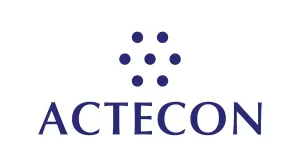With the recent decision given by the 13th Chamber of the Council of State on 24 May 2021,1 the administrative fine given to the Turkish Pharmacists Association ("TPA") by the Turkish Competition Authority ("TCA") on the grounds that some of its decisions and practices violated Article 4 of Law No. 4054 on the Protection of Competition ("Competition Law") was annulled. The decision, which was rendered at the end of an administrative judicial process that lasted many years, also included determinations regarding the jurisdiction of the TCA. This article discusses the process and results of that decision.
Factual and Legal Background
The practices and decisions of the association examined here occurred mainly in 1997 and 1998. Since then, these decisions and practices also have been evaluated by administrative judicial bodies. Therefore, it would be beneficial to provide some background information on the developments since 1997 regarding the case.
The decisions and practices of the TPA that are alleged to have violated the Competition Law can be divided into two groups: (i) the decision taken at the 31st Ordinary Grand Congress of the TPA in December 1997 regarding surcharge, and (ii) the decisions taken at the TPA 31st Term 1st Board of Presidents.
The decision taken on surcharge taken by the TPA General Assembly at the TPA 31st Ordinary Grand Congress was aimed "to assign a task to the TPA Central Committee to work on (compel) the pharmacies not to sell drugs below or above the prices determined by the Ministry of Health."2 Despite this decision, a pharmacist operating in İzmir did not reflect the price hikes approved by the Ministry of Health on the prices of the drugs sold in her pharmacy. This was deemed to lead to unfair competition and an investigation was initiated by the İzmir Chamber of Pharmacists. The investigation was brought in front of the İzmir Chamber of Pharmacists, the Council of Honour, and the pharmacist was given a written warning. This sentence was upheld by the TPA Council of High Honour.
The decisions at that TPA 31st Term 1st Board of Presidents actually were taken in reaction to decision number 102 of the Executive Board of the Pharmaceutical Manufacturers Association of Turkey ("PMAT") in December 1997. Since the decision of the PMAT, some restrictions have been imposed on the sales conditions of suppliers and pharmaceutical warehouses, and some sanctions have been envisaged against businesses that have not implemented them. The most important sanction in the PMAT decision, which sets limits on maturity, surplus, and discount (which is one of the sales-increasing factors offered by the suppliers to pharmaceutical warehouses and the sales-increasing factors offered by the warehouses to pharmacies) stipulates the transition to the new prices approved by the Ministry of Health within one month and introduces rules for promotional activities. The PMAT decision also foresees that goods will not be delivered to warehouses that do not comply with the restrictions. After the implementation of the said decision, complaints were made to the TPA by various pharmacists and affiliated chambers of pharmacists. Thereupon, to boycott the PMAT decision, the TPA decided to (i) reduce drug stocks, (ii) not to participate in company campaigns, (iii) purchase new drugs only when needed, (iii) prefer deferred purchases, and (iv) prefer pharmacist cooperatives as much as possible. This decision also was sent to the pharmacist chambers.
As a result of the investigation launched against the above-mentioned TPA practices and decisions taken against the PMAT:
- the TCA concluded that Article 4 of the Competition Law had been violated and imposed an administrative fine of EUR 4,255,363.793 (TRY 2,433,600,000) on the TPA4;
- following the TCA's decision imposing an administrative fine on the TPA, that body filed a lawsuit against the TCA's decision;
- thereupon, the 10th Chamber of the Council of State annulled the part of the TCA's decision regarding the surcharge decision of the TPA and found the part regarding the decision taken by TPA to boycott the PMAT to be lawful5;
- ensuing this judgement, the TCA objected to the 10th Chamber's decision and the matter was brought to the Council of State, Plenary Session of the Administrative Law Chamber ("Administrative Law Chamber");
- the Administrative Law Chamber reversed the decision of the 10th Chamber (which had annulled the TCA's decision partly) and sent the file to the 13th Chamber on the grounds that it was illegal for the member of the TCA conducting the investigation to attend the final decision meeting and to vote; and
- upon the decision of the Administrative Law Chamber (which had reviewed the 10th Chamber's decision), the 13th Chamber of the Council of State annulled the TCA's decision on the same grounds.
The TCA's Decision on the Actions of the TPA
Upon the annulment decision mentioned above, the TCA discussed the issue again. However, since the annulment decision of the Administrative Law Chamber (which had reviewed the Tenth Chamber's decision) was based on procedural grounds, the TCA provided assessments similar to those included in the annulled decision.
In the part of the TCA's decision regarding surcharge, it was determined that although the process examined mainly had been carried out by the İzmir Chamber of Pharmacists, this practice had been based on a decision taken on surcharge at the TPA 31st Ordinary Grand Congress. It is seen that this decision reflected the disposition of the TPA, which is considered to be an association of undertakings within the meaning of Competition Law.
According to the findings, the 31st Ordinary Grand Congress of TPA appointed the Central Committee to compel the pharmacies not to sell at prices other than the prices determined by the Ministry of Health. It was found that the discourse and practices of the TPA and its affiliated chambers of pharmacists showed that the decision that had been taken at the Congress had reflected the will of the pharmacist professional organizations and had been implemented.
The relevant legislation was examined within the scope of the TCA's decision. It was stated that selling at prices above those determined by the Ministry of Health was prohibited by law. However, it was concluded that the TPA's decision constituted price-fixing since it not only set an upper limit but also a lower limit for prices. Although this practice was contrary to Article 4 of the Competition Law, it was determined that its possible effect on the market was limited. Limiting the penalties imposed by the TPA Council of High Honor for non-surcharge to a written warning also was taken into account as a matter of mitigation.
The elements of the decision taken by the TPA to boycott the PMAT decision also were examined by the TCA. Within the scope of this examination, it was concluded that
- reducing the stocks of pharmaceuticals would result in a decrease in the sales of the suppliers for a certain period and by reducing the stocks, efforts we made to direct the suppliers to return to the previous sales conditions.
- the fact that pharmacies did not participate in the campaigns together could led to temporary cash shortages among providers, as pharmacies could purchase at higher levels during the campaigns. Therefore, not participating in the campaigns was aimed at creating pressure on the providers.
- The tendency of pharmacies to purchase on deferred purchases was a practice that could reduce cash purchases and cause cash flow issues to providers in the short term;
- In the examination of the practice of choosing pharmacist cooperatives as often as possible in purchases, it was underlined that pharmacies were both partners with and customers of the pharmacist cooperatives. In this respect, it was stated that the aim of the TPA by choosing the cooperatives may have been in order not to be affected by the decision of the PMAT;
- On the other hand, it was stated that a decision by the TPA on an issue of where pharmacies should act independently of each other constituted an example of demand being determined outside the market in terms of purpose.
- Finally, in terms of purchasing new drugs when requested, a serious amount of pressure could not be put on the providers with this limitation, which was for a group that expressed a limited number of products only during the period when the PMAT decision had been effective.
At this point, it is stated in the written defences of the TPA that the decision taken against the PMAT decision was based on the relevant legislation, since according to Law No. 6643 on the Turkish Pharmacists' Association ("TPA Law"), facilitating the professional activities of pharmacists was among the duties of the TPA. However, the TCA did not consider this defence valid, stating that the issues covered by these duties were regulated in detail in the relevant legislation and that determining the demand outside the market was not among them.
In summary, the decision taken against the PMAT decision and the actions in line with this decision created a non-competitive pressure on the suppliers, and that they were intended to determine the purchasing conditions outside the market and might had have this effect.
In the light of these evaluations, the TCA concluded that the decisions taken at the TPA 31st Ordinary Grand Congress and the TPA 31st Term 1st Board of Presidents had violated Article 4 of the Competition Law and the TPA was fined EUR 1,267.506 (TRY 2,433.60).7
The Relevant Legislation of the TPA Law
Before we dive into the Council of State's evaluation on the matter, it would be useful to briefly mention the relevant legislation. According to Article 1 of the TPA Law, some of the founding purposes of the TPA are to (i) meet the common needs of pharmacists, (ii) facilitate their professional activities, (iii) ensure that honesty and trust prevail in the relations of pharmacies with each other and the public, and (iv) ensure professional discipline.
In subparagraph (b) of Article 4, protecting the material and moral rights and interests of its members, and in subparagraph (c), assisting the proper implementation of the laws on the practice of the pharmacy profession and the relevant legislation, are listed among the duties of the TPA.
The duties of the Chambers of Pharmacists Councils of Honour are listed in Article 20, and in Article 30, the powers of the Council of Honour are specified. In this context, the punishments to be given to those who did not fulfil the duties assigned to them by the Law and who acted against professional ethics and dignity are specified.
The Decision of the 13th Chamber of the Council of State
Following the TCA's abovementioned decision, the TPA filed a lawsuit for annulment. This lawsuit was concluded with the decision of the 13th Chamber of the Council of State,8 which upheld the part of the TCA's decision not related to the surcharge.
The part regarding the surcharge in the TCA's decision was examined separately. Within the scope of this examination, the 13th Chamber of the Council of State underlined that, according to the relevant legislation, although pharmacists could not sell drugs at a price higher than the price written in the drug price tariffs approved by the Ministry of Health, there was no legal obstacle for them to sell at a price below that written in the tariff. Therefore, it was concluded that the decision of the TPA on surcharge was against competition and therefore the TCA's decision was in accordance with the law in this respect. However, the penalty given to the pharmacist who sold at the old price despite the surcharge decision of the TPA also was evaluated.
Considering the abovementioned legislative rules, the 13th Chamber of the Council of State stated that, pursuant to Article 4 of the Competition Law, undertakings were required to make their own and independent decisions on matters related to their activities while making their economic decisions within the framework of the relevant legislation. It was emphasized that the duty of legal supervision of whether the activities of undertakings comply with the legislation belonged to the administrative authorities and judicial authorities stipulated in the legislation. Sanctions could not be applied due to non-compliance with the Competition Law in these matters.
The 13th Chamber of the Council of State, which annulled the relevant part of the TCA decision on the grounds that the TPA Council of High Honour's decision regarding the approval of the warning penalty given to the aforementioned pharmacist, approved the remainder of the TCA decision, as stated above. The TPA and TCA mutually appealed for the annulment of the parts of this decision that were against them.
The decision of the Administrative Law Chamber, which examined the appeal against the decision of the 13th Chamber of the Council of State, contained the most remarkable evaluations among all these decisions.9
The Decision of the Administrative Law Chamber
In its decision, the Administrative Law Chamber (which had reviewed the 13th Chamber's decision) underlined that the TPA had been established with the TPA Law, and its duties and authorities were determined by the same Law. Considering the defences the TPA had stated (that the decisions and practices that led to the establishment of the action subject to the lawsuit were decisions that had been taken per the administrative procedures and the practices duly fulfilled in accordance with the duties given by TPA Law and the relevant legislation), the Administrative Law Chamber (which had reviewed the 13th Chamber's decision) ruled that the TPA's decisions and practices, alleged to be within the scope of Article 4 of the Competition Law, needed to be evaluated within the scope of the TPA Law, which determined the scope of the duty of the TPA.
Reviewing the 13th Chamber's decision, the Administrative Law Chamber also held that whether the TPA's decisions' complied with the legislation and the law should be determined, and therefore the matter should be examined in an annulment lawsuit.
Most importantly, however, it was stated that the TCA did not have the authority to examine and decide on this issue since it was an issue that should be evaluated within the scope of TPA Law and not within the scope of the Competition Law.
Consequently, it was decided that the decision of the 13th Chamber of the Council of State, with respect to the decisions taken in the 31st Term 1st Board of Presidents of the TPA and the decision taken at the 31st Ordinary Grand Congress ruling that the concerned surcharge violated Article 4 of the Competition Law was not in accordance with the law. Thereupon, the 13th Chamber of the Council of State, to which the file had been returned, decided to annul the TCA decision in line with the decision of the Administrative Law Chamber.
Conclusion
As can be seen, the TPA decisions and practices that were said to have been anti-competitive have been the subject of an administrative judicial process that lasted nearly 24 years. At the end of this process, the Administrative Law Chamber stated that the legality of the TPA's decisions and practices should be examined within the scope of TPA Law and in an annulment lawsuit to be filed. In this respect, the Administrative Law Chamber, stating that the TCA does not have the authority to examine and take decisions on this issue, in a sense limits the jurisdiction of the TCA in this case.
Footnotes
1 13th Chamber of the Council of State Decision, 24 May 2021, No. E:2020/597 13th Chamber of the Council of State Decision, 24 May 2021, No. E:2020/597 K:2021/1848.
2 TCA decision, 26 August 2010, No. 10-56/1078-407, p.3.
3 The EUR buying rate of exchange of the Central Bank of Turkey (571.89) for 18 September 2000 was taken as basis in calculating the fine in EUR.
4 TCA decision, 18 September 2000, No. And 00-35/393-220.
5 10th Chamber of the Council of State decision 9 March 2004, No. 2004/2386 K.
6 The EUR buying rate of exchange of the Central Bank of Turkey (1.92) for 26 August 2010 was taken as basis in calculating the fine in EUR.
7 TCA decision, 26 August 2010, No. 10-56/1078-407
8 13th Chamber of the Council of State decision, 14 April 2015, No. E:2011/297, 13th Chamber of the Council of State decision, 14 April 2015, No. E:2011/297, K:2015/1458.
9 Council of State, Plenary Session of the Administrative Law Chamber decision, 7 March 2018, No. E:2015/4236, Council of State, Plenary Session of the Administrative Law Chamber decision, 7 March 2018, No. E:2015/4236, K:2018/763.
The content of this article is intended to provide a general guide to the subject matter. Specialist advice should be sought about your specific circumstances.



